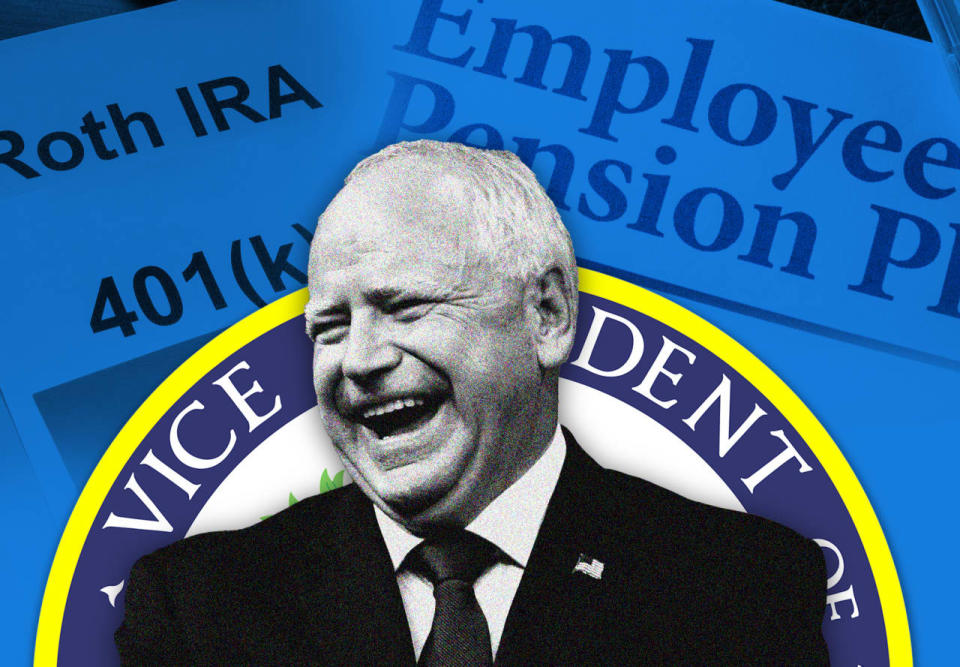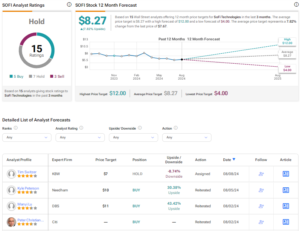Is not owning stocks or bonds really so weird if you have pensions? Unsolicited advice for Tim Walz.


MarketWatch’s Fix My Portfolio imagines what kind of financial questions someone like Minnesota Gov. Tim Walz, the Democratic vice-presidential nominee whose personal wealth appears to be mostly in pensions, might have…
Dear Fix My Portfolio,
Most Read from MarketWatch
I’m a 60-year-old civil servant — former military, former teacher — and my wife is also a teacher. We make a pretty good income now of about $170,000 combined, and we live in housing that my job supplies. We have two children, one is 23 and done with school, and the other is 17 and about to apply to college. I’m up for a big promotion, but I won’t know whether I get it until November. We don’t have much by way of savings and we don’t have any significant amount of stocks or bonds or other investments. We also don’t own any property at the moment.
The good news is that we will have a lot of pension income between the two of us plus Social Security, which I expect would more than cover our living expenses in retirement. But what if we want to buy a place down the line or have high healthcare expenses or just some other emergency that our savings can’t handle?
Campaigning for more
Dear Campaigning,
Your situation is very familiar to me, as somebody who grew up with parents who were teachers and structured their retirement in much the same way.
For many years, teachers were encouraged to invest their 403(b) contributions in annuities, rather than mutual funds that are more typical in private-sector 401(k) plans. The mantra was always “slow and steady wins the race.” So, it’s not uncommon for people like you to have all their savings tied up in pensions and annuities and not have any other savings in stocks and bonds. Salaries are not generally high in this area, and that doesn’t leave a lot left over for individual investing. Only 61% of Americans own stock of any kind, according to a 2023 poll by Gallup. It works out fine for many people, but there are also some hurdles.
The major issue is that you risk being over-annuitized. Having all your retirement income tied up in pensions, Social Security or annuities that provide monthly payments can leave you without a big pool of savings to tap in emergencies or even for big-ticket items that you want. You’re stuck saving for your whole life, stashing away bits of your monthly checks to pay for things you want later.
Financial adviser Mychal Eagleson told me about a teacher he knew who had a pension and had also put all her 403(b) savings into an immediate annuity. The pitch was, instead of just the amount you get from the state each month, you’ll get an extra $1,000. “But when she needed a new car, her only option was to wait months and months to save up for it,” said Eagleson, whose firm Teach Plan Retire specializes in helping teachers. “Pensions and annuities are best at providing stability, but they are not good when something unknown comes up. You trade flexibility for security.”
You also make some trade-offs for growth. In an annuity within a 403(b), you typically pay wraparound fees for the contract in addition to any yearly plan fees. In addition, the growth potential is preset and can fall well short of the stock market in some years. If, instead, you took your contributions and put them in the kind of mutual funds typical in a 401(k), you might have done better over the years, plus now that you’re 60, you’d have full access to the funds as long as you pay income tax on whatever distributions you take.
“Most teachers do not have access to self-directed investment options or even a plan where an adviser can help them out,” said Eagleson. “Teachers need to advocate and tell their districts to make their 403(b) plan look like any private-sector 401(k).”
Another problem is that you can’t always count on pension income. In some states, pensions are woefully underfunded, and could eventually pay out less than you are expecting. Social Security, for that matter, is also threatened with insolvency in the next 10 years, which could lead to reduced benefits for some. Also, depending on what state you are in, some teachers and other civil servants are not eligible for Social Security, because it’s rolled in with their state pensions. When you combine that with the pension fragility, it can spell doom.
“There’s a chance in your lifetime that you may not get what you’re promised,” said Eagleson.
What you can do now
In the absence of industry change, what you, or any teacher, can do now is try to diversify your retirement-income sources going forward. If your 403(b) plan has a match, that’s a good place to start, but only if the match is generous and there are investment options that do not involve annuitizing the income.
Eagleson tells clients their next best step would be investing in a Roth IRA, in which you put after-tax income so that it grows tax-free. “As long as they don’t have a spouse with high income, it’s a Roth IRA all the way,” he said. “It provides tax diversification and then they won’t have to worry about every single distribution.”
Beyond that, Eagleson said he would look at Roth 403(b) options, if available, because that could be rolled over into a Roth IRA after retirement and the growth would be tax-free. If there is a choice to invest in a 457 plan — which is another sort of retirement plan for civic workers that is sometimes offered to teachers — do that instead of the 403(b). Eagleson said he prefers 457 plans, generally, because they usually have investment options more like a 401(k) plan.
The overall goal when you expect a lot of pension income later in life is to save as much as you can outside of that structure so you have flexibility. For now, you might have to pay college tuition out of current income and take out some loans, or hope for scholarships and grants. But if you change your strategy, down the road, you could put together enough savings to make a down payment on a retirement home.
That said, if you were, say, going to be in a high government office for four to eight years, other opportunities might come along, like a book advance, that could immediately provide you with that liquid pot of assets to fund your future goals. Even if you stay where you are, your profile could rise and lead to consulting work in retirement, and that could get you what you need to buy a retirement home and whatever else you need.
It would be interesting to see what your next update provides, to see if your situation has changed since you last reported it. (Note: the Harris-Walz campaign had no comment on this scenario.)
Got a question about investing, how it fits into your overall financial plan and what strategies can help you make the most out of your money? You can write to me at . Please put “Fix My Portfolio” in the subject line. You can also join the Retirement conversation in our .








